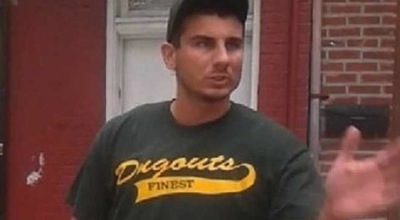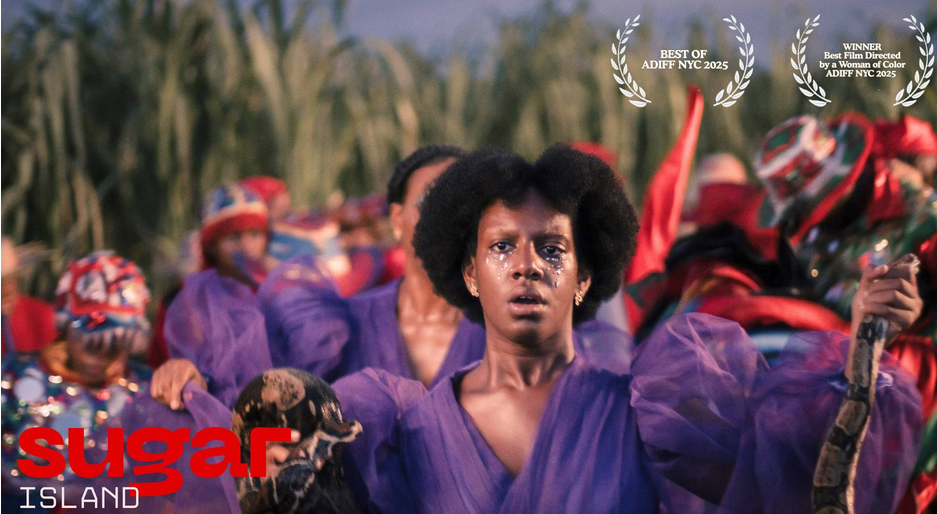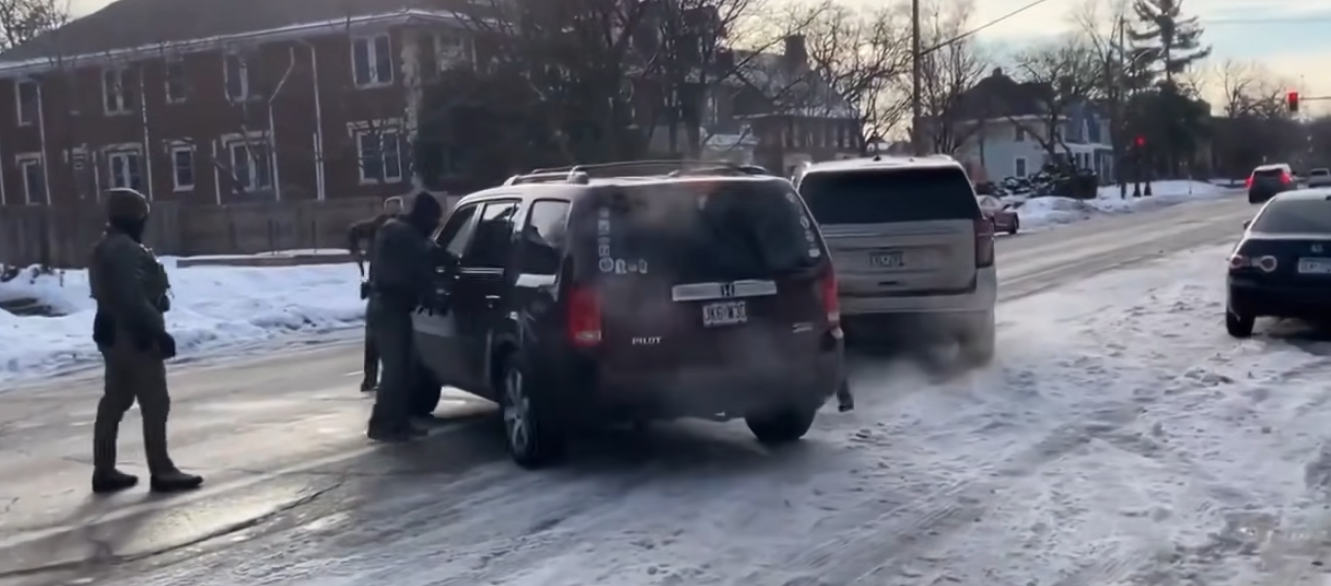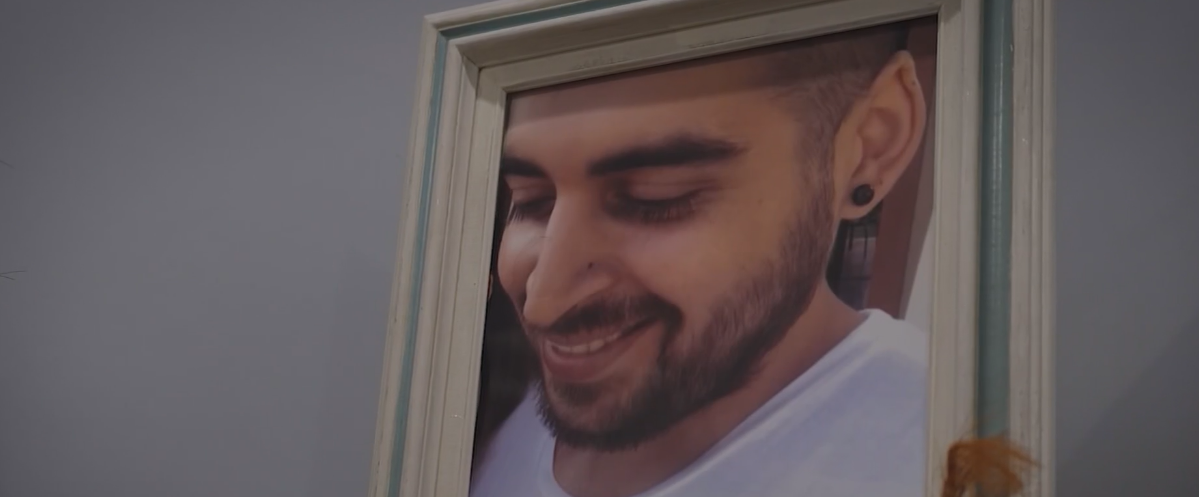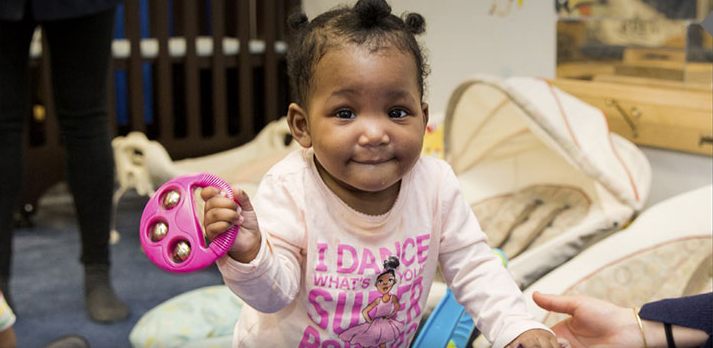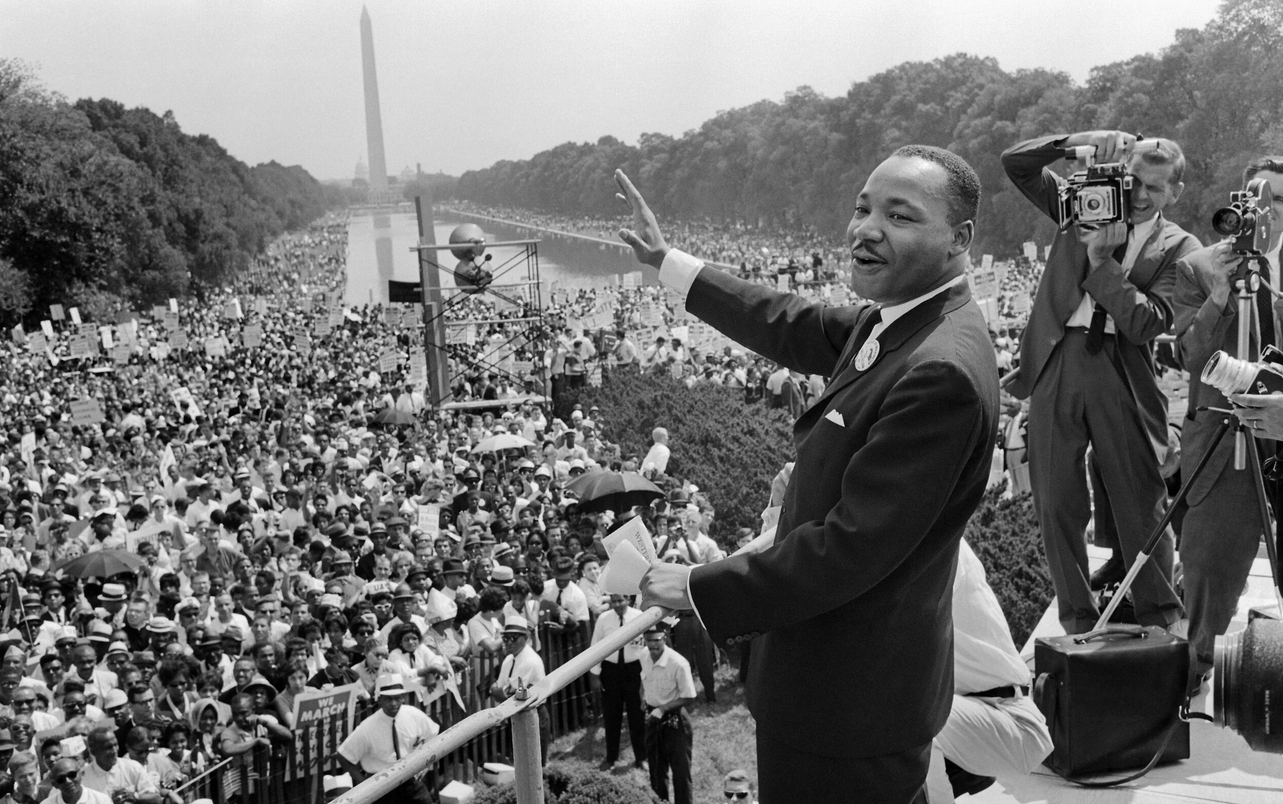Eric Garner’s killer Pantaleo: Why is he still on NYPD?
[Speaking Truth To Power]
For months now, since the lynch-hold strangulation killing of Eric Garner, many New Yorkers have been protesting police brutality and the racist policing tactics that occur under “Stop-and-Frisk” and “Broken Windows” while wondering what is wrong within the NYPD which makes it operate in the manner it does.
One need only examine the antics of loudmouth PBA President Patrick Lynch, whose approval rating is in the gutters at 18% according to a Quinnipiac poll, and, of duplicitous Commissioner Bill Bratton to figure out why the NYPD has such a bad public relations problem, with respect to racial policing.
Mr. Bratton’s handling of the incendiary situation in the aftermath of the Eric Garner killing leaves much to be desired. Officer Daniel Pantaleo, Garner’s killer, should’ve been fired immediately after the commissioner saw the video of the deadly encounter. Even giving the killer cop benefit of the doubt, who can trust the judgment of someone who ignores a plea of “I can’t breathe” 11 times to carrt an NYPD issued firearm? It’s insane.
But we’ll get back to the commissioner. Let’s talk a little about the PBA “leader.”
Mr. Lynch is a poster-child for the type of repugnantly repulsive conduct police departments should be free of. Lynch’s brash behavior exemplifies all the characteristic charisma of a schoolyard bully who thinks he can get his way by making noise and trying to intimidate people. Isn’t the NYPD troubled by the message it sends having a rowdy ruffian like this represent them?
After the murder of Officer Rafael Ramos and Officer Wenjian Liu, Mr. Lynch said the “blood on the hands starts on the steps of City Hall, in the office of the mayor.” According to Lynch, Mayor de Blasio somehow caused these officers to be killed—not the actual murderer Ismaaiyl Brinsley, a mentally unstable suicidal Black man with a long documented record of illness. Perhaps de Blasio was also the reason why Brinsley shot his former girlfriend in Maryland on the same day before heading to New York?
This inflammable statement should’ve been roundly denounced, especially by those police officers who complain about being stereotyped by the action of some cops.
Ironically, many of the same cops who complain about being “painted with a broad brush” seem to have no problem racially profiling African-Americans—failing to see this as hypocritically inconsistent.
The recent Quinnipiac University poll proved that most New Yorkers recognize how repugnant and dangerous Pat Lynch’s statement was. Pat Lynch basically said he doesn’t give a damn what the public thinks. Is this an example of the “courtesy, professionalism and respect” New York City residents should expect from police? If the PBA chief behaves in this manner, can we expect any better from the rank-and-file NYPD officers? Officers have an opportunity to answer this question in June during election for PBA presidency.
Indeed, Mr. Lynch should’ve been soundly scourged for his sordid statements and belligerent behavior—while, wearing a badge and representing those in Blue who feel their profession is honorable.
So, can we expect Commissioner Bill Bratton to control this lout—who is a loose cannon in the NYPD? Unfortunately, not. Mr. Bratton’s behavior is also quite suspect.
By now, we’ve all heard Mr. Bratton was, supposedly, not happy by those officers who turned their backs on the mayor a second time—at the funeral of Officer Liu—after, having reportedly requested officers not do this again as they did during the funeral of Officer Ramos. But Bratton’s appeal was undercut by Bratton’s own combustible comments when he made the ghastly pronouncement that the killings of the officers were a “direct spinoff” of the peaceful protesters.
Does Commissioner Bratton really believe this? If he does, then isn’t he really in agreement with Mr. Lynch’s statement about there being “blood on the hands” of Mayor de Blasio and “on the steps of City Hall” because the mayor made statements sympathetic to the sentiments of peaceful protesters? Can we expect this commissioner to excoriate Mr. Lynch when his statement is so in line with Lynch’s comments?
If Mr. Bratton believes the killings were a “direct spinoff” of those protests, then doesn’t that also mean he thinks the protests should stop? Wasn’t he really saying something Mr. Lynch was saying too: that police are at risk of losing their lives if protests against police brutality are allowed to continue? Isn’t that an underhanded way to stop people from engaging in their First Amendment Right on one of the most important topics affecting African-Americans?
The tactic here is meant to silence those who have a legitimate right to protest against the racial policing and murder that has been plaguing African-Americans for decades. It’s not a coincidence that this is a national calamity, with high-profile cases in Missouri, in California, in Ohio, and elsewhere around the nation.
The truth is: there are many who don’t want any change in the way African-Americans are harassed, criminalized and even murdered in the streets by the extra-judicial executions enforced by prejudicially inculcated police officers. These two twin figures, Bratton and Lynch, who represent the NYPD, do little to encourage and inspire confidence that meaningful change is coming.
In some ways, Commissioner Bratton’s conduct is more troubling than Mr. Lynch’s. One time he talks against racist police officers not belonging on the force, as he did last October; then the next he’s blaming the death of Officer Ramos and Officer Liu on the protests. Is the commissioner playing a deceptive double-dealing game with the mayor?
Mayor de Blasio has given his continued blessing to “Broken Windows.” Is this because he fears angering Bratton who has championed this policing practice that has been regressively racist in its everyday application? If “Broken Windows,” supposedly, punishes small “crimes” to discourage large crimes, why isn’t it being implemented against the master thieves of the universe down on Wall Street before they engineer an even bigger global meltdown than 2008’s?
When Commissioner Bratton said the killing of the officers were a “direct spinoff” of protests wasn’t he just trying to deflect from the death of Eric Garner? Officer Pantaleo, along with “Broken Windows,” caused the death of Mr. Garner. Wasn’t it the pressure to write tickets—under the “Broken Windows” policy—that put Pantaleo and Garner on a collision course of death? Isn’t this why Officer Pantaleo wasn’t reprimanded for basically killing Garner for allegedly selling loose cigarettes?
So, going by the “Broken Windows” philosophy, Garner was killed to prevent him from shifting into “bigger” crimes, which presumably would have been selling whole cartons of cigarettes?
Is Bratton now fearful this “Broken Windows” policing policy he ardently advocates will be exposed for its uselessness in curbing real crime—in economically ostracized and abandoned Black communities? Isn’t he also worried an acknowledgment of this would tarnish his legacy?
Is this why he has been tepid at best in his statements regarding the conduct of Patrick Lynch?
Mr. Bratton seems to be playing Mayor de Blasio like a fiddle to protect his questionable legitimacy as commissioner. He wants to have his cake and eat it too, as the saying goes.
Bratton may well be trying to give the mayor an impression that if his job, as police commissioner, is jeopardized that Mayor de Blasio will be left to fend for himself against a hostile NYPD distrustful of the mayor. Mr. de Blasio needs to think long and hard about what he will say to the family of the next innocent person killed by this bankrupt “Broken Windows” police policy. One cigarettes-execution is one too many.
During the recent police work protest stoppage—where the writing of tickets and summonses slowed down—there was no uptick in violent crime, which should make us examine more closely why NYPD policy-makers insist on these initiatives. Are they honestly afraid that little “crimes” cause big crimes to occur? Or, isn’t this just more proof that Black and Brown communities are targeted—not just for criminalization—but also to suppress legitimate discontent over economic marginalization?
We now know in Ferguson, Missouri the writing of tickets and summonses accounts for the second largest means of revenue stream. In New York City, we should start asking the question: how much money does the NYPD squeeze out of indigent African-Americans and Latinos under the “Broken Windows” guise of “fighting crime?”
So, while these politicians refuse to invest in poor Black communities these have no problem sucking even more money from them.
One can tell a lot about an organization by the people who are the face of that organization. The people of New York City need to ask themselves if they can’t do better that having people like Mr. Lynch and Mr. Bratton representing the NYPD.
New York City must do better.
